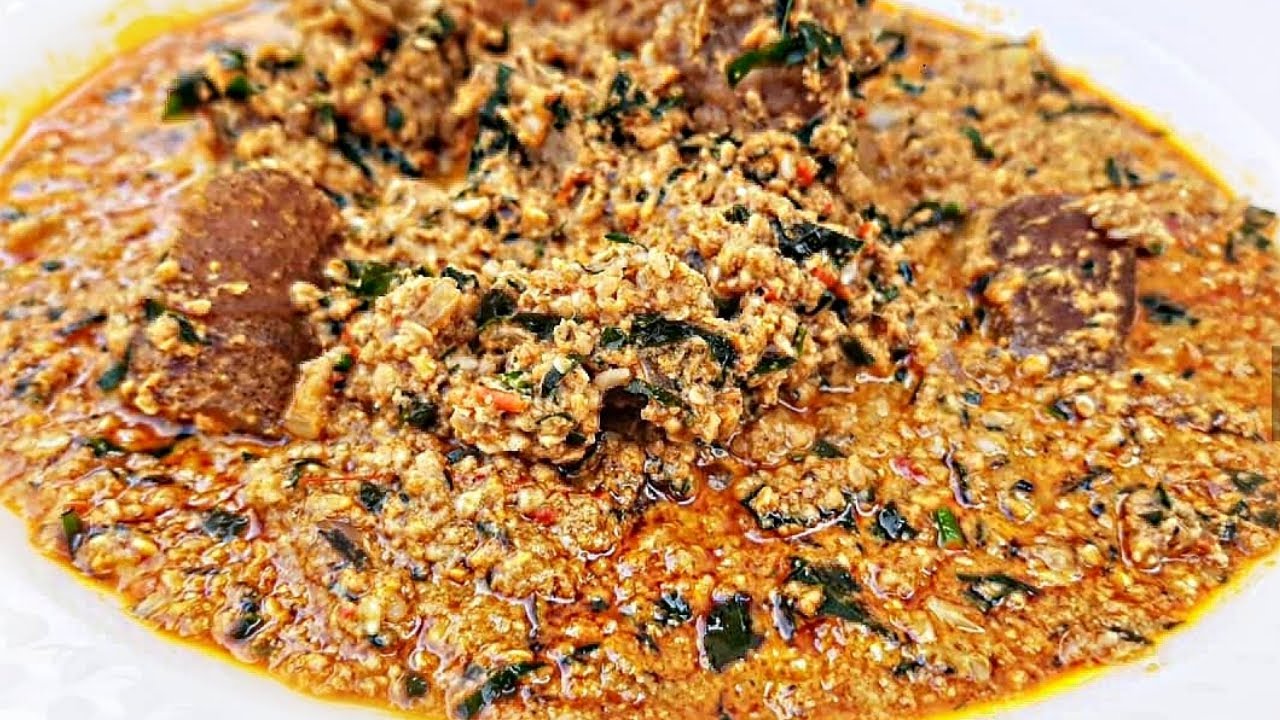A Comprehensive Guide on How to Make Nigerian Sesame Seed Stew

Nigerian cuisine is known for its rich flavors and diverse range of dishes. One popular and flavorful dish is Nigerian Sesame Seed Stew.
This delightful stew combines the nutty flavor of sesame seeds with a variety of aromatic spices and vegetables.
In this comprehensive guide, we will take you through the step-by-step process of making Nigerian Sesame Seed Stew, so you can enjoy this delicious dish in the comfort of your own kitchen.
Nutritional Benefits Of Nigerian Sesame Seed Stew

Nigerian Sesame Seeds, also known as Beniseed or Benni seeds, offer several nutritional benefits.
Here are some key nutritional components found in Nigerian sesame seeds
1. Healthy Fats
Sesame seeds are a good source of healthy fats, including polyunsaturated and monounsaturated fats.
These fats are beneficial for heart health and can help in maintaining healthy cholesterol levels.
2. Protein
Nigerian sesame seeds are a rich source of plant-based protein. They contain all the essential amino acids necessary for the body’s growth and repair processes.
Incorporating sesame seeds into your diet can be especially beneficial for individuals following vegetarian or vegan diets.
3. Dietary Fiber
Sesame seeds are high in dietary fiber, which aids in digestion and supports a healthy digestive system.
Fiber also helps to regulate blood sugar levels, promote satiety, and maintain a healthy weight.
4. Vitamins and Minerals
Sesame seeds are a good source of various vitamins and minerals. They contain notable amounts of calcium, iron, magnesium, phosphorus, zinc, and copper.
These minerals play crucial roles in bone health, energy production, immune function, and overall well-being.
5. Antioxidants
Sesame seeds are rich in antioxidants, including sesamol, sesamin, and sesamolin. These compounds help protect cells from damage caused by harmful free radicals and oxidative stress.
Antioxidants also have anti-inflammatory properties and may contribute to various health benefits.
6. Plant Compounds
Sesame seeds contain natural plant compounds such as lignans and phytosterols, which have been associated with potential health benefits.
Lignans, for example, have been studied for their potential anticancer and hormone-balancing properties.
It’s important to note that while Nigerian sesame seeds offer nutritional benefits, they are also high in calories.
Therefore, moderation is key when incorporating them into your diet, especially if you’re watching your calorie intake.
Overall, Nigerian sesame seed stew provides a range of essential nutrients, healthy fats, and antioxidants.
They can be a valuable addition to a balanced and varied diet, promoting overall health and well-being.
Ingredients

For the stew
- 1 cup of sesame seeds
- 2 tablespoons of palm oil
- 1 finely chopped onion
- 2 cloves of garlic, minced
- 2 red bell peppers, diced
- 2 tomatoes, diced
- 1 scotch bonnet pepper, chopped
- 2 cups vegetable
- 1 teaspoon ground crayfish
- Tilapia fish
- Bigmama Fish flavour
- 1 teaspoon ground ehu seeds (calabash nutmeg)
- 1 teaspoon ground uziza seeds (optional)
- 1 teaspoon ground uziza leaves (optional)
- 1 teaspoon ground ehuru seeds (optional)
- Salt to taste
For the garnish
- 1 handful of chopped spinach or ugu leaves (fluted pumpkin leaves)
- 1 handful of chopped scent leaves (optional)
Instructions
Below are the step-by-step instructions on the preparation of Nigerian sesame seed stew
1. Toasting the sesame seeds
- Heat a dry skillet or frying pan over medium heat.
- Add the sesame seeds and toast them, stirring frequently, until they turn golden brown and release a nutty aroma. Be careful not to burn them.
- Once toasted, transfer the sesame seeds to a plate and allow them to cool.
2. Blending the sesame seeds
- Once the toasted sesame seeds have cooled, transfer them to a blender or food processor.
- Blend the sesame seeds until they form a smooth paste. You may need to scrape down the sides of the blender or food processor occasionally to ensure even blending.
3. Preparing the stew base
- Heat the palm oil in a large pot or saucepan over medium heat.
- Add the chopped onions and minced garlic to the pot and sauté until the onions become translucent and slightly caramelized.
- Add the diced red bell peppers, tomatoes, and scotch bonnet pepper (if using) to the pot. Stir well to combine.
- Cook the mixture for about 5 minutes until the vegetables have softened.
4. Adding the sesame paste and spices
- Add the blended sesame seed paste to the pot and mix well with the stew base.
- Pour in the vegetable or chicken broth, stirring to incorporate all the ingredients.
- Add the ground crayfish (if using), ground ehu seeds, ground uziza seeds, ground uziza leaves, and ground ehuru seeds. Stir to combine.
- Season the stew with salt to taste. Remember to start with a small amount and adjust as needed.
5. Simmering the stew
- Reduce the heat to low and cover the pot with a lid.
- Allow the stew to simmer for about 15-20 minutes to allow the flavors to meld together and the stew to thicken slightly.
- Stir occasionally to prevent the stew from sticking to the bottom of the pot.
6. Garnishing and Serving
- After simmering, add the chopped spinach or ugu leaves to the stew and stir well. Allow them to cook for an additional 2-3 minutes.
- If desired, add the chopped scent leaves for added flavor and aroma.
- Remove the pot from the heat and let it rest for a few minutes before serving.
Nigerian Sesame Seed Stew is traditionally served with a side of boiled yam, plantains, or rice. Choose your preferred accompaniment and enjoy!
Tips
- Adjust the amount of scotch bonnet pepper based on your spice preference. Be cautious as it can be very hot.
- Feel free to add other vegetables such as carrots or green bell peppers to enhance the stew’s nutritional value and texture.
- If you cannot find some of the traditional Nigerian spices mentioned, you can still make a delicious sesame seed stew using just the sesame paste and other readily available spices.
Conclusion
Nigerian Sesame Seed Stew is a flavorful and aromatic dish that showcases the unique taste of sesame seeds.
By following this comprehensive guide, you can easily prepare this delicious stew in your own kitchen.
Enjoy the rich flavors and the cultural experience of Nigerian cuisine with this delightful recipe!
